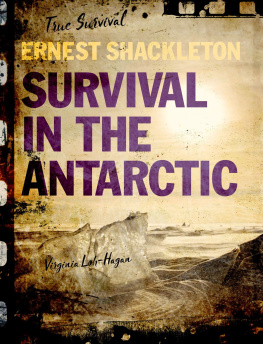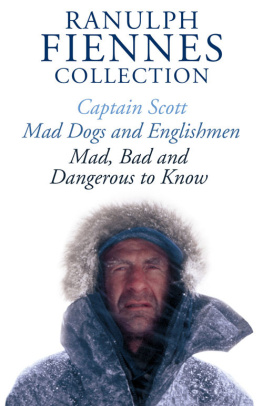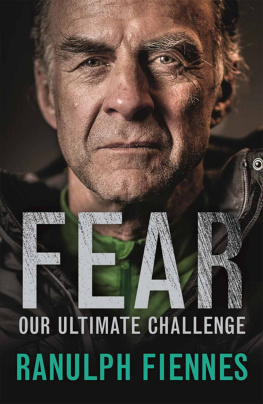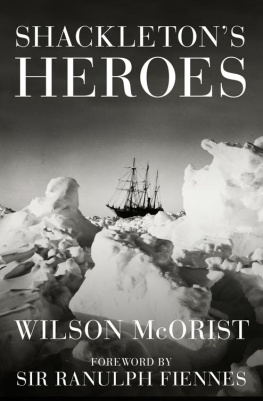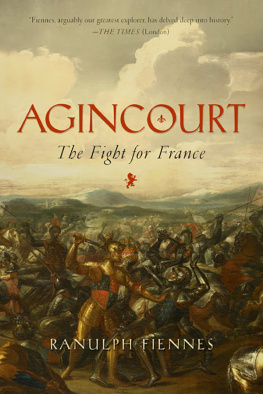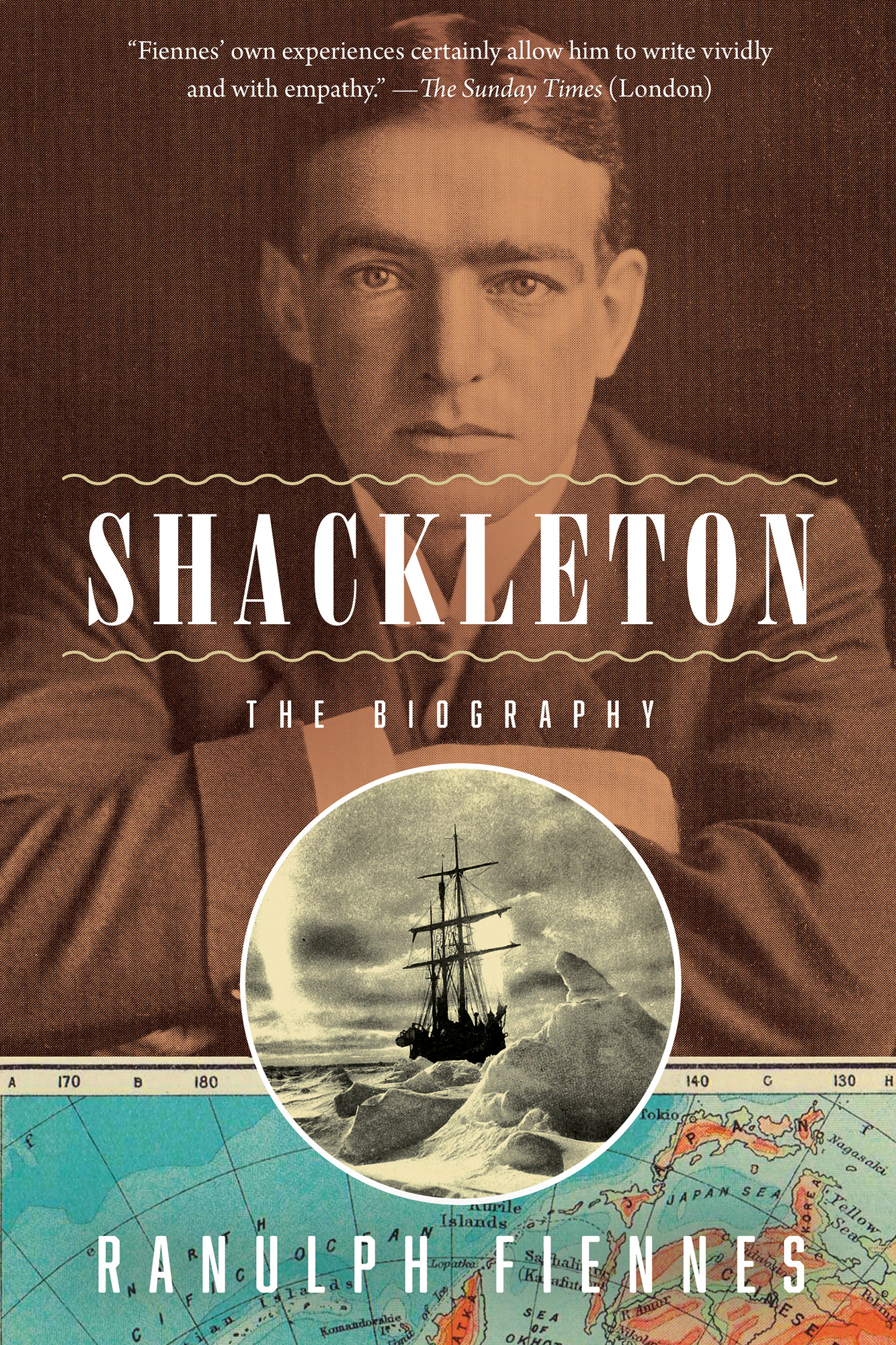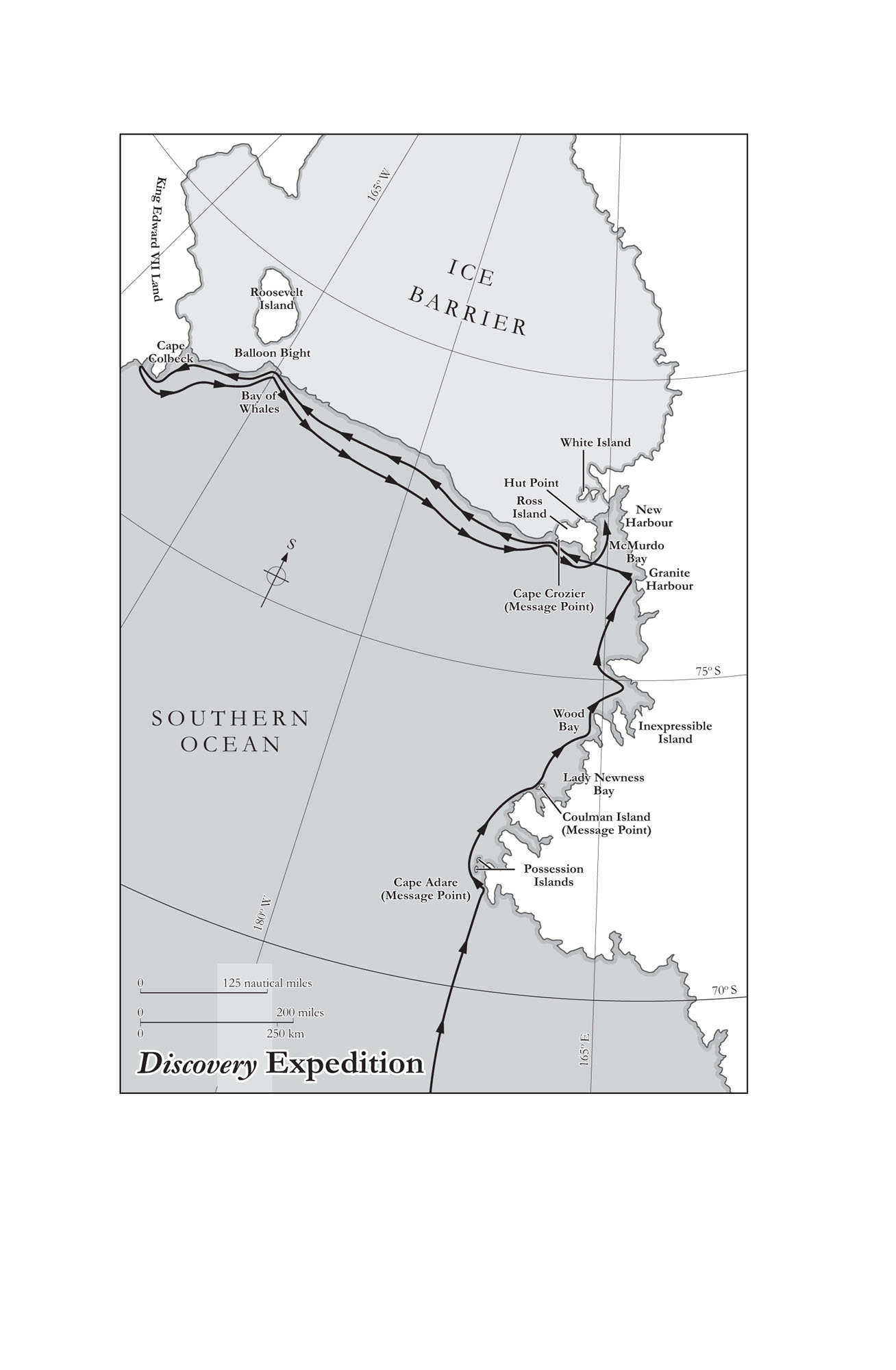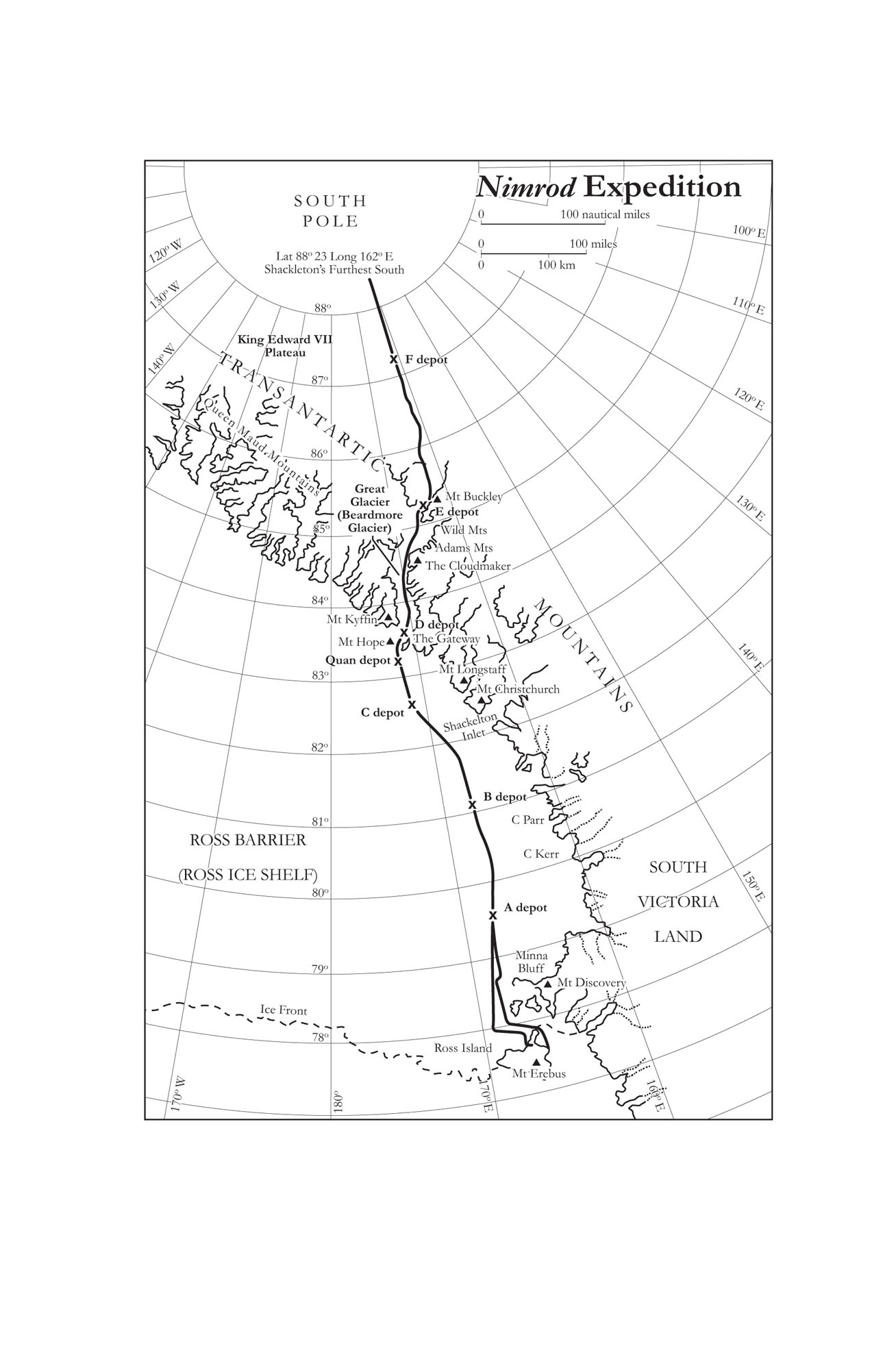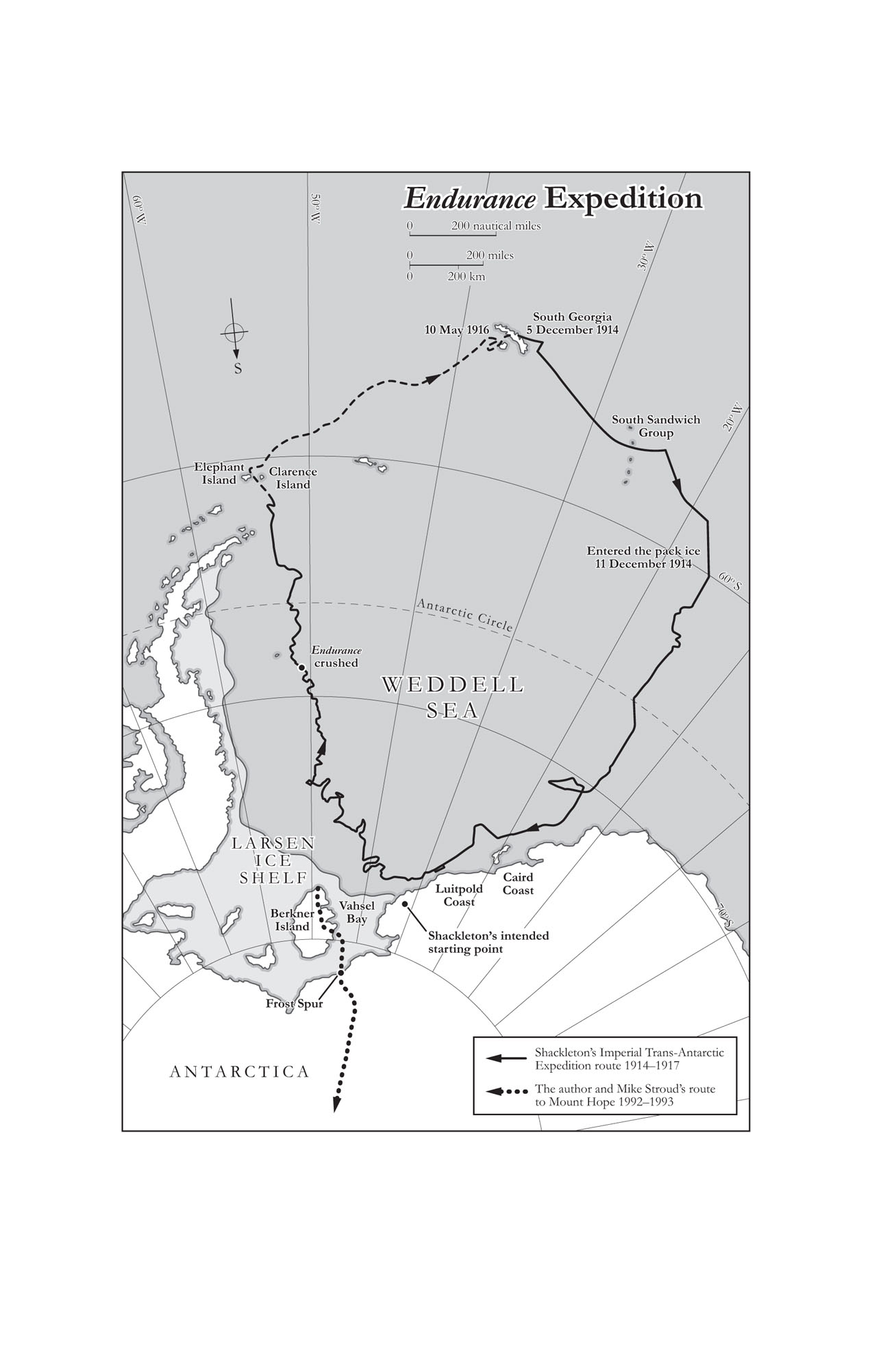Contents
Guide
Fienness own experiences certainly allow him to write vividly and with empathy. The Sunday Times (London)
Shackleton
The Biography
Ranulph Fiennes
SHACKLETON
Pegasus Books, Ltd.
148 West 37th Street, 13th Floor
New York, NY 10018
Copyright 2022 by Ranulph Fiennes
First Pegasus Books cloth edition January 2022
Jacket design by Faceout Studio, Jeff Miller
Imagery by Alamy and Shutterstock
All rights reserved. No part of this book may be reproduced in whole or in part without written permission from the publisher, except by reviewers who may quote brief excerpts in connection with a review in a newspaper, magazine, or electronic publication; nor may any part of this book be reproduced, stored in a retrieval system, or transmitted in any form or by any means electronic, mechanical, photocopying, recording, or other, without written permission from the publisher.
ISBN: 978-1-64313-879-4
Ebook ISBN: 978-1-64313-884-8
Distributed by Simon & Schuster
www.pegasusbooks.com
This book is dedicated to the sponsors and team members of the expeditions of Ernest Shackleton as well as those of my own.
Introduction
During the searing-hot summer of 1964, I was packed off to London to purchase canoes on behalf of the Royal Scots Greys Canoe Club. The so-called swinging sixties were well underway, so I needed no second invitation to escape my barracks and visit a city bustling with life and excitement.
Having hailed a black cab from Waterloo Station, as we passed the shimmering Thames I noticed quite a commotion taking place on board a ship. Arching my neck to get a better look, the black-cab driver shouted over his shoulder, Thems all Shackleton men famous explorers and all that.
Shackleton The mere mention of his name conjured up a buzz within me. I knew the stories well, having been enthralled by them as a child. An explorer and conqueror of unknown lands, Shackleton was also the man who had embarked on one of the most dramatic survival and rescue missions of all time. While his name was synonymous with the Antarctic, it was also indelibly linked with virtues such as courage and leadership. Once a mere mortal, Shackleton was now an icon, whose endeavours were forever etched into the granite of British history.
Forty-two years after his death, a celebration of his life was now being held on the Thames, the scene of departure for so many of his expeditions, where he had set off in front of thousands of cheering admirers. Time, it seemed, had not dulled the Shackleton legend. I was later to learn that on the ship that night were fellow explorers, journalists and admirers, as well as the two doctors who were with him when he died, Alexander Macklin and James McIlroy. It seemed everyone still wanted to somehow touch the magic, which despite Shackletons many failings, and failures, had made him the most colourful of all the famous Victorian polar tyros.
Within seconds of setting my eyes on this scene we had passed the ship and I had to return my mind to the less exciting job at hand: buying canoes. But in its own way this seemingly inconsequential moment was already laying a path for me to follow in years to come.
Having left the armed forces in the early seventies, and in need of a job, I embarked on some expeditions along various remote rivers and glaciers in Norway and Canada. My appetite whetted, and my ambition and confidence gathering, I then set my mind to conquering some of the great polar challenges which had eluded the likes of Scott, Shackleton and even the famed Norwegian Roald Amundsen.
The first of these was the Trans Globe Expedition. After seven years of excruciating fundraising and preparations, my team and I set off in 1979, with the aim of becoming the first to travel over the entire surface of the Earth, via both poles, without flying one yard of the way. This, of course, not only involved reaching the South Pole but travelling across Antarctica itself, as had once been Shackletons dream. In doing so, much like the famous Victorian explorers, I was able to set sight on lands that had never before been seen, let alone crossed. Like Shackleton and his contemporaries, we also did this before the age of polar-orbiting satellites, so, with no GPS, satnav or satphone, we had to navigate with sextants, theodolites and hand compasses.
In 1993, I went one step further, when along with my expedition colleague, Mike Stroud, we became the first to cross the Antarctic continent unassisted, without the aid of food drops, transport or machinery. For ninety-two days, we each hauled a load of 485 lbs, over snow, ice, treacherous crevasses and mountains. All the while, we fought starvation, fatigue, frostbite and blindness, as well as the constant danger of falling into the crevasses. In 1996, with most of our polar goals now accomplished, I attempted to become the first man to cross the Antarctic solo and unassisted. Alas, an attack of kidney stones stopped me short.
Nevertheless, these expeditions have provided me with a unique perspective into Shackleton the man, as well as his adventures. As the Shackleton legend has grown over the decades, a litany of books and films about him has flooded the market. Debates have subsequently raged about his preparations and decision-making, not all of them flattering. Some of these books have certainly been entertaining, and educational, but others I have found myself vehemently disagreeing with, as some have played many tunes, invented many twists and told many lies.
It is for that reason that I decided to write this book. Of course, I needed no second invitation to travel alongside Shackleton and live vicariously through his adventures. But I certainly dont want to simply retread familiar tales. My aim is to offer my own perspective, for what its worth, to hopefully enlighten and enrich the legend. Indeed, to write about Hell, it certainly helps if you have been there, and no previous Shackleton biographer has man-hauled a heavy sledge load through the great crevasse fields of the Beardmore Glacier, explored undiscovered icefields or walked a thousand miles on poisoned feet, hundreds of miles away from civilization.
I hope you will enjoy Shackletons still quite incredible story, for even now, almost a century after his death, his great achievements continue to astound and amaze.
PART ONE
And I smelt the Galleys odour
Heard curses of sailor men
1
The giggling, cries and gasps of awe coming from the young Ernest Shackletons bedroom were signs that, once again, he had his sisters in the palm of his hand. Gathering around their brother, the Shackleton sisters, of whom there would eventually be eight, were totally immersed in his grip. Standing tall, looking at his sisters one by one, the young boy, with fair hair and angelic eyes, set forth tales from his vivid imagination. He told them that just weeks before he had gone to London with one of his friends and they had encountered a raging inferno which threatened to engulf the city. Together, they had somehow managed to save the day and, as a reward, the Monument, near London Bridge, had been erected in their honour.




